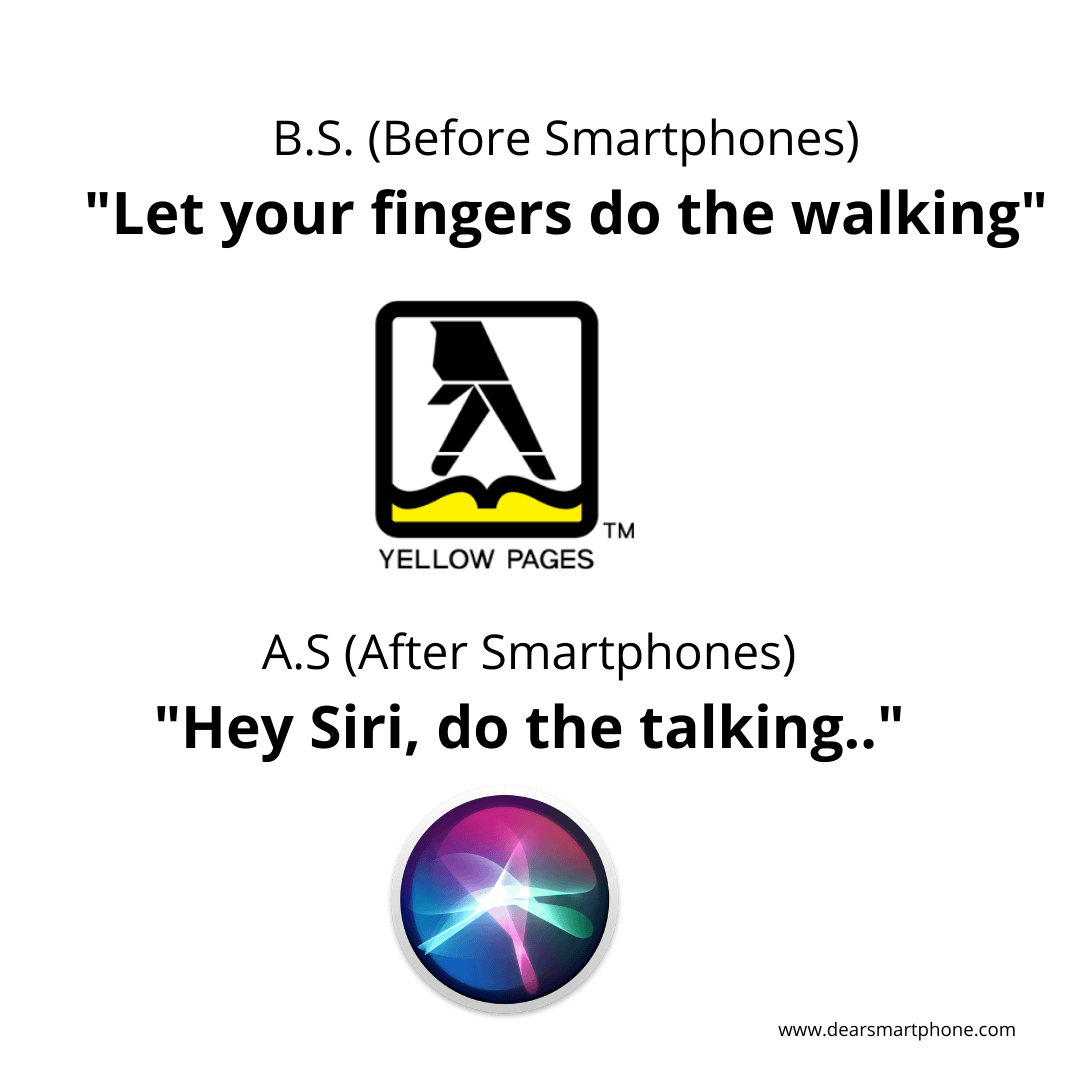
Dear Ms Smartphone: How should I find a local business? My family wanted to take a rafting trip together so I went online. Most of the places are about 60 miles from my home. I searched on Google and picked the one with a good web site and nice pictures of the river. When we got there, I discovered there were other rafting places nearby that were open and had better boats. Unfortunately, they did not come up in my search or at least I don’t remember that they did. Maybe I’m old fashioned, but I preferred it when we searched the Yellow Pages. Bernice, S. San Francisco
Dear Bernice:
Do you remember the slogan, “Let your fingers do the walking (through the yellow pages?” Well, today it’s “Let Siri do the talking”!
Your question is interesting, because indeed, how we search for information and how we discover things in the community have changed so much. As of 2011, nearly 70 % of Americans rarely or never used printed phone directories (the yellow pages), and since then most have gone digital. Even if you liked to use the yellow pages keep in mind that you needed a local directory to search a business even 60 miles away.
Not So Local!
Several years ago there was a scam in digital searches. Say you were looking online for a towing service or locksmith. The address would not pop up and people naively thought they were reaching a local business. Instead, the online connection was to shills far away. Sometimes these nefarious characters took credit card information online and never showed up, or, subbed out the work.
Since then, search engines like Google, Bing and others have cleaned up their protocols and make it more evident when you do a local search that you are reaching a local business. In terms of your specific search for rafting trips, a couple of things might have gone missing.
Keywords (and Key Phrases)
First, the businesses that display top-most in the search, like the one you selected, could have bought an ad placement. Here’s how it works: The business owner bids on keywords and pays a fee to display their name at the top of the list if someone searches choice terms like ‘raft’ or ‘water adventure’ or ‘canoe.’ There’s a tiny icon that says ‘ad’ when the listing displays on your screen, but it certainly easy to overlook it if you are in a hurry.
That said, local businesses do not have to pay to have their listing posted on Google. The listing is free and Google gives them a free web page and map links. But, without the keywords, the listing may display further down the search page.
It takes a little bit of digital savvy for a business owner to understand how to get listed and show up on the map. In your case, the other rafting companies may have ignored this, or simply didn’t care. In this link you will find a funny, perhaps sad, discussion between Google business and a locksmith– the locksmith said he just wanted to fix things, he did not know, or care to learn, about posting things on a computer.
Searching is a 2-way street
The onus to search is a two-way street. To get the full listings you want for a far-away community, the geographic location needed to be specified. Sometimes we turn off the GPS on our devices, and forget to include the place-name in our searches. We all tend to stop searching after the first few listings display, but the first ones-up are the paid-for-ads. Other local businesses (e.g. the other rafting businesses) may be several pages deep and require more effort to find.
I would like to think that younger people (the Digital Natives) dig deeper in their search requests and do not stop at the first results. But, maybe not. Do you recall how many businesses in the days of Yellow Pages called themselves “AAAAAlocksmith, AAAAplumber and AAAArafting? When it comes to finding things, both then and now, a little knowledge helps float the boat.


Leave a Reply
You must be logged in to post a comment.